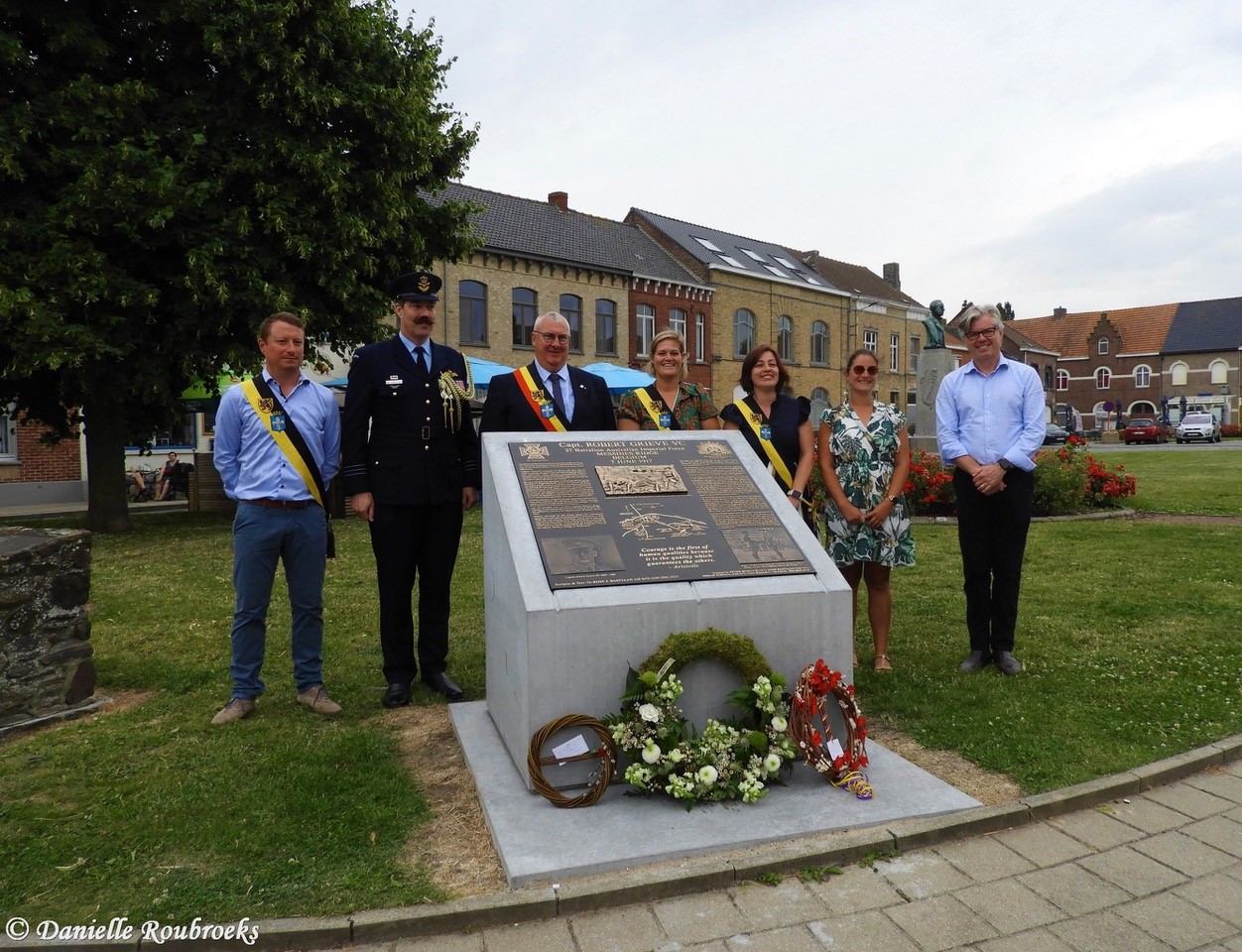
3 minute read
Bravery recognised in Belgium
By Philip Powell
Since 2003, Captain Robert Grieve’s Victoria Cross (VC) has been on display in the Galleries at the Shrine of Remembrance. It is on long-term loan from Wesley College, Melbourne, who was gifted the VC by his family in 1959.
Grieve was awarded the VC for his action during the Battle of Messines. On 9 June 1917, he led 200 men of A Company, 37th Battalion facing their first major action on the Western Front.
When the men attacked, they were quickly held up by machine guns in at least one concrete pillbox. Grieve instructed his men to stay in their shell holes and then he alone moved forward, throwing grenades at the enemy positions.
He used the cover of the blasts to move from shell hole to shell hole until he was able to directly place his grenades to silence the guns. His men could then move forward and take their objectives. Robert was injured shortly after and left the battle to seek medical treatment.

Despite news of his award making front page news in England and Australia, there was no memorial recognition in Belgium of his actions. This has now changed.
On 9 July 2023, Mesen (the Flemish name for Messines) town mayor Sandy Evrard and Wesley College Principal Nick Evans unveiled a plaque in the Mesen market square that describes in both English and Flemish the story of his VC action.
The plaque was designed by Dr Ross Bastiaan, who is internationally recognised for his battlefield and historical plaques. The new plaque stands adjacent to Ross’ 30-year-old Battle of Messines plaque.
“This memorial rightly provides a permanent marker of the bravery of not only Captain Grieve, but the contribution of all Australian troops who fought in this action. I am delighted that the Mesen Town Council has graciously permitted this plaque to be installed here,” Dr Bastiaan said.

Also present at the unveiling were councillors of the Mesen Town Council, Wing Commander Jesse Laroche, the Australian Defence Attaché based in Brussels, representatives of Wesley College and local members of the community.
In his remarks at the unveiling, Nick Evans noted Grieve’s afternoon action on 7 June 1917 stood as a testament of the man he was—a quiet but determined leader who, when the moment came, decided that he alone would move to take out an important enemy position with no more than a few hand grenades.
It was the recommendation of two sergeants in his company that was put forward to higher command to award a VC for his bravery. After the announcement of the VC award, his men wrote and signed a letter to him, saying “we will cherish with pride your deeds of heroism and devotion which stimulated us to go forward in the face of danger, and at critical moments, to give the right guidance that won the day and added to the banner of Australia, a name which time will never obliterate.”
Philip Powell is a researcher at Wesley College, Melbourne. He has written several books on former students’ First World War service, and is now completing a book on their Second World War service.










